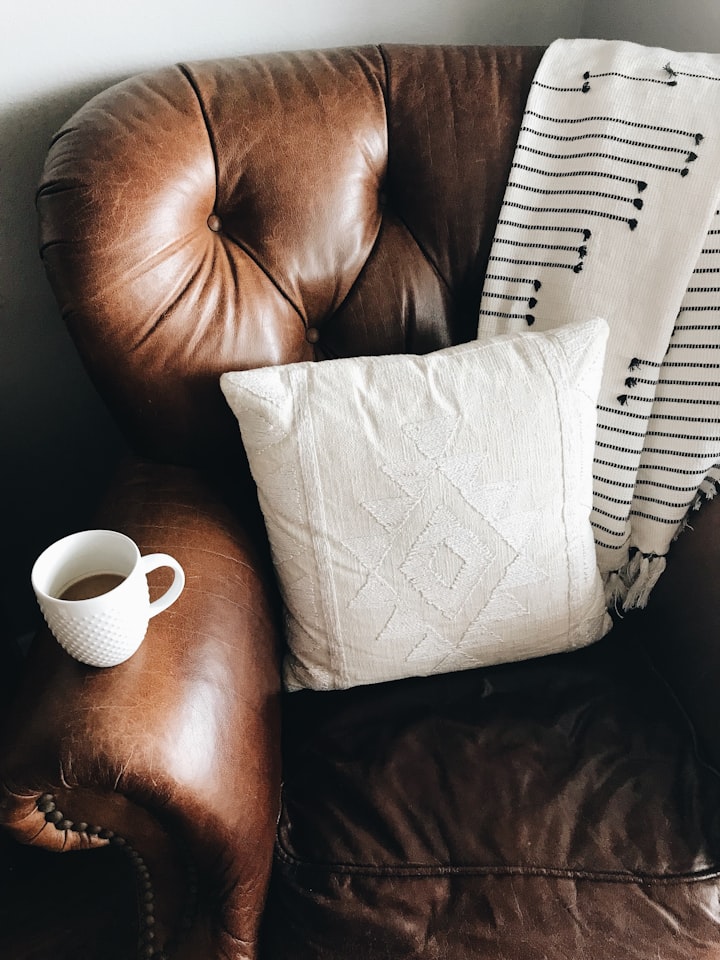For The Things You Want To Remember
With all my love Nora Banks

I was eating a ham sandwich when my neighbour called round. A hint of concern accompanied the newspaper he brought me like an unwanted side of salad. Served with salad or with sympathy? I don’t know which is worse. We didn’t need either of them in my day: sausages and a stiff upper lip that’s what this country used to run on.
His concern though confused me even more than those limp leaves that appeared sometime in the nineties, sprouting up like an edible weed in our collective consciousness. ‘I do hope everything goes OK today’. That’s what he had said, a lingering, unwelcome emphasis on the ‘do’. Why wouldn’t everything be OK? Today is like any other day. It’s something I must ask Aggie about. She says I’d lose my head if it weren’t screwed on.
My neighbour moved towards the window ledge and put his hand on a photograph of a young boy sat on top of someone’s shoulders. The sleeve of his suit lifted up his wrist, and I saw an expensive, shiny looking watch. ‘I know 20,000 won’t go that far, but I wanted to help. It might keep you here for six months or so—’
I stopped listening and stared at that unnecessary trinket on his wrist. I wanted to swat it away. Who was he to come into our house and decide we needed charity? Aggie’s always managed our money just fine. There’s never been any robbing Peter to pay Paul here.
I stood up. The kitchen chair scraped back. I hit his hand away. The photo frame fell to the floor; the glass shattered; his face crumpled like a flimsy piece of paper.
Afterwards, I sat down on the sofa. Most things I forget too easily, but I couldn’t get this talk of money out of my mind. I turned on the T.V and watched some newfangled reality T.V show. The rain drummed against the window as if nature was grumbling at the existence of these modern day rabbits: breeding with anything they saw and no doubt eating salad on the side. Things weren’t like that when I married Aggie. I looked across at her photograph: her hair was blowing in wisps around her smiling eyes; her dress was lifting slightly above her knees. We were at the seaside that day; I ate a Vanilla ice-cream, and she took the flake. She always did; I always wanted her to.
I turned the television off.
I looked at my watch and wondered when Aggie would be home. She will understand what’s going on with this money. If we’ve had a windfall, she’ll be the one to decide how we spend it. She always was the one with the head for numbers. Perhaps she’d like to go to the seaside again. You don’t get much for your money these days, but a trip like that can’t cost much.
It was then that I heard someone at the door.
In the end it wasn’t someone; it was some-them: two soppy, salad-leaf smiles standing in the rain. A man and a woman. They were both soaked.
‘Is Nora in?’ asked the man, his hairless, spot-pitted face making him look like he still belonged in the schoolyard. ‘We’re here to do the assessment for assisted living care.’
I told him that no one called Nora had ever lived here and that in my day boys like him got a whack with a slipper for telling falsehoods. He hugged his folder of paper to him like a flimsy shield. Everything is a paper and pen war these days.
I was about to slam the door in their faces when a blonde, middle aged woman came down the stairs behind me; she’s lucky she wasn’t a man or I’d have thumped her there and then. There is strength in these fists still.
‘Hi there. Sorry, thank you, I would have been down sooner but I was hoovering.’
I shouted then; I remember three scared faces staring back at me, but I don’t remember what I said. The woman kept repeating her name to me as if that would somehow make a difference.‘It’s Nora. It’s Nora. It’s me, Nora.—’
‘Who the bloody hell is Nora, and what are they doing here?’ I shouted.
The woman lowered her voice and spoke slowly, saying something ridiculous about how important it was for me to let the people in. She said they were going to help me stay at home a little while longer.
I shoved her hard and told her I didn’t need anyone. I thought she might cry, but all she did was tell the people that perhaps today wouldn’t work after all.
I told them that when Aggie gets home, she’ll give them all a talking to.
*
I am alone on the sofa now, and I am starting to feel better. I have been writing this in a black leather bound notebook, passing the time till Aggie gets back. In the front page someone, not me, has written: ‘For The Things You Want to Remember’. I think perhaps that it was Aggie. I keep glancing up at her photograph; my eyes smile to meet hers.
The notebook fits in my palm and feels comforting; it reminds me of something I had when I was a boy, perhaps something I did my arithmetic in while staring at the back of Aggie’s head. I was never any good; she was brilliant. Her head could run up and down numbers as if they were a ladder. I can see her now: grey socks slumping around her ankles, back arched, hair unbrushed, ink splattered on her fingers. The scruffiest girl in class, that’s what Mr. Brown had called her. Later, when we were alone in the schoolyard, I told her she that she was the smartest girl in the school.
I remember now that it was my daughter, not Aggie, who bought me this book. She told me to write in it for company; she said that it will help me remember the important things, although I can’t remember what it is I'm remembering. There are too many remembers in that sentence, but the word is too much in my mind, too much on everyone else’s lips. Hopefully it’s not something important I’ve forgotten like milk or bread. Hopefully it’s something like salad.
I thought for a second I heard Aggie at the door; I shouted but no one came.
I looked back at her photograph and noticed the stain on the side of her dress; I’d forgotten about that story. It happened just as we got off the bus; Aggie sat down on a white bench, staring at the sea and not noticing the ‘wet paint’ sign. She laughed at my panic and twirled her ruined dress around in front of me. ‘It doesn’t matter about the money Harry. I don’t need a new one, I don’t need anything but you.’. She pulled me to her side, looked out over the waves and told me to drink it all in. When I think about that moment I know she was right: we never needed anything but each other.
The sky outside is greying, ageing; the shadows are stretching across the carpet, creeping towards me. We bought this carpet back in the 70’s, and it has lasted all this time. Aggie’s taken good care of it; just like she takes good care of me. Perhaps we could use this money to get a new one. Maybe we should re-do the whole place. I bet Aggie would like the change. She always was the adventurous one.
I am looking around the room now. Everything in it feels empty like something has been taken out. My fingers are gripping this notebook as if it might tie me down to something I understand.
It’s getting late and Aggie still isn’t home.
I am staring again at her photograph. There are three ‘With Sympathy’ cards on the mantel crowding in between it and the clock; I don’t remember them appearing there. Something about them makes me struggle with tears that I cannot understand. I have not let myself cry. I don’t remember the last time I cried.
*
I am looking at the mess I’ve caused since I last wrote in this book. I’ve yanked everything out of Aggie’s bureau which stands in the corner of the living room. I needed to find the address book. I couldn't find it, and now there are books and pencils and stamps and trinkets strewn all over the carpet. The place looks a right mess.
I might have managed to find the address book if the blonde woman hadn’t come in and disturbed me. She switched the lights on, and the shadows snapped out of existence. I was crouching on the floor, amongst Aggie’s things, and for some reason I felt embarrassed as if I’d been caught doing something dirty.
The woman made me sit back on the sofa. She brought me tea and biscuits, but she didn’t look at me. I could sense that she was furious; her anger seemed to come off her in waves. I shouted at the back of her pink cardigan and asked what the hell she was doing in my house.
She came back later with dinner on a tray: a jacket potato, beans, cheese and a pile of salad leaves. Aggie wouldn’t have given me salad. I told the woman this and asked her again what she was doing here. She didn’t answer for awhile and stared down at her pink slippers, her brows furrowed as if thinking of something to say. ‘I’m just here to look after you,’ she said.
The woman sat with me while I ate. I didn’t like her: she got everything wrong and underneath her soft words I felt that she was still mad. She asked me if I had enjoyed seeing my Grandson when he brought the newspaper round. I told her my grandson is five and at school. My heart glowed a little as I told her how well he was doing: top in Arithmetic just like his nan. Her blue eyes blinked rapidly then, and she said she wished I knew just how well my Grandson was really doing. I didn’t like her manner, though the way she looked at me was somehow familiar. She turned away from me and looked at the mess in the corner of the living room.
‘Really what was this for?’ she said.
I didn’t want to tell her as it’s not good manner to discuss money outside family.
‘I wanted to find my daughter’s address,’ I said eventually.
‘Why?’
‘Can you get it for me?’
‘If you tell me why you need it.’
I looked at her for a long time. ‘Well, I’m not saying this to boast, but Aggie and I have come into some money. Around about 20,000 pounds. Now I’ve decided, and I know Aggie will agree, that we’d like it to go to her and her boy.’
The woman’s face softened. She reached out a hand towards mine. For the first time I thought that she looked happy.
‘What?’ I said.
‘It’s just sometimes I forget that you’re still in there.’ She was about to say something else when her eyes started to glisten. She got up and rushed from the room.
I am alone now with my jacket potato and salad. I’m staring at it, and I’m starting to cry. I’ve never liked salad but I’ve never cried over it before. Why does my chest ache over rocket leaves and spinach?
The woman has come back in and is telling me that everything is alright. She’s saying that tomorrow is another day and that we can try again with the assisted living people.
I’ve thrown my plate, and bean juice is seeping into the carpet.
Aggie, I don’t understand.







Comments
There are no comments for this story
Be the first to respond and start the conversation.